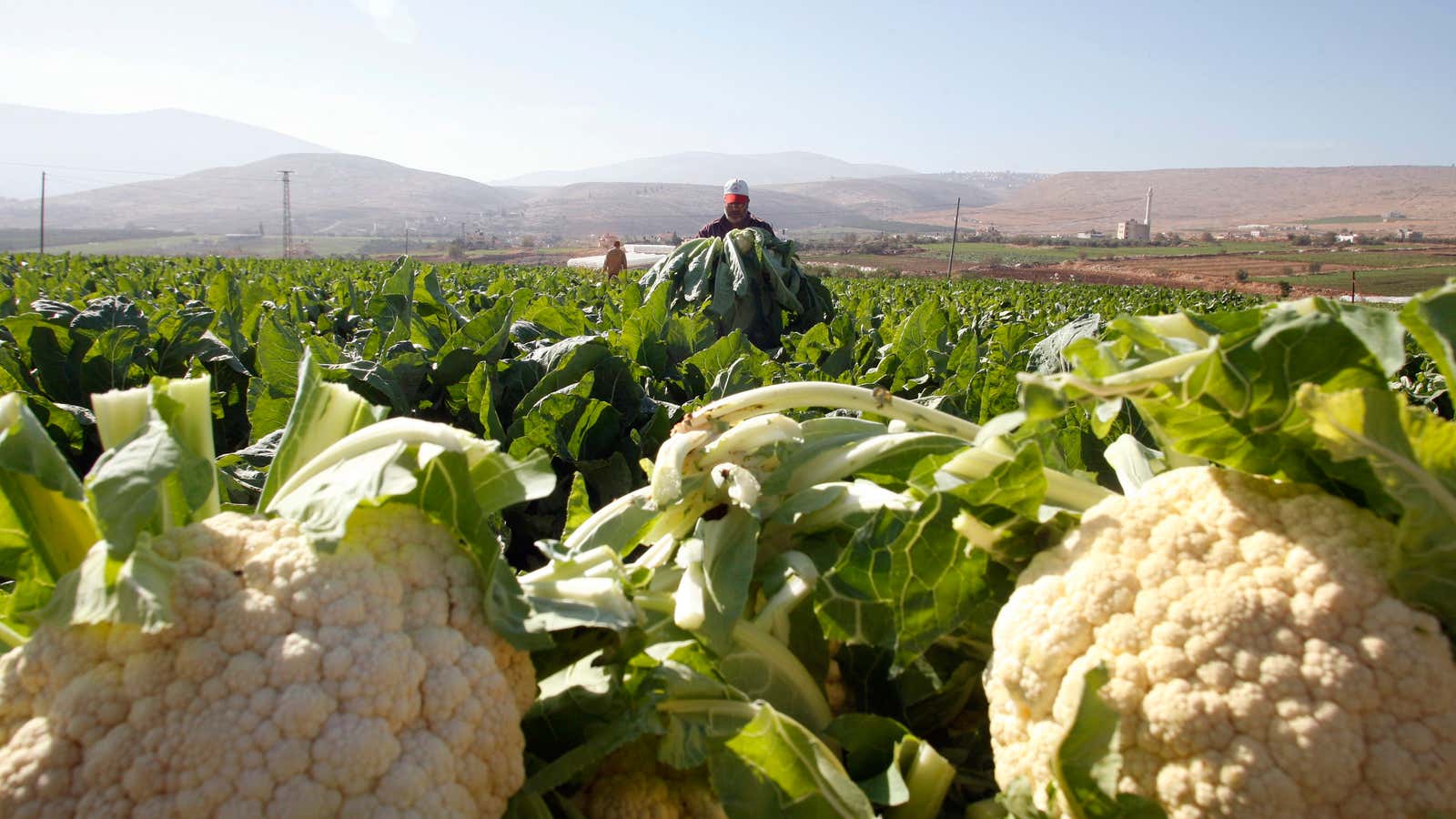In Arkansas, one in five of roadways are in poor condition, the median household income sits well below the national average, and the poverty rate is hovering close to 20%. State lawmakers have a lot of work on their hands. But this past week, they honed their attention on cauliflower.
The state legislature on March 20 passed a measure banning food companies from marketing “cauliflower rice” as “rice.” The ban also prohibits companies that make cell-cultured and plant-based meats from marketing their products as “meat.” They claimed using such terms could confuse people.
In signing the bill into law, governor Asa Hutchinson made Arkansas the sixth US state to codify such a measure on meat, though it was the only one to include a specific provision on cauliflower rice (Arkansas is the largest US rice-producing state). Missouri was the first to take one up last year.
The passage of these laws has a backstory, which lays bare the underlying—and growing—tension between the people who produce our food and the people who actually buy and eat it.
That tension starts with consumers’ curiosity. They’re interested in milks made from almonds and cashews and soy and oats. They’re eager to try plant-based burgers. And, yes, they are fascinated by cauliflower—which, it turns out, can be pretty tasty when shredded into rice-sized bits or milled into flour for pizza dough.
This latter interest has been evident not just in social media mentions, but also in dollars. According to a 2018 article (paywall) in The New York Times, Nielsen data show sales of “cauliflower centric” dishes rose 108% in 2017 compared with the prior year. And the trend has continued its upward trajectory.
That kind of data has captured the attention of established food industries, which understandably feel a little miffed that interest in their products might be diverted to others. So they’ve started to push back. Initially, these attempts were unsuccessful. The dairy industry took the makers of almond milk to court over the use of the term “milk,” which they argued confuses and deceives consumers.
But multiple judges have disagreed. So now these groups are starting to play politics, often going state by state. Now that they’re finding success, groups such as the Good Food Institute, which represents the interests of plant-based and cell-cultured meat companies, are crying foul.
“It is clear that this legislative push isn’t actually about protecting consumers at all,” the group said in a statement. “It is about protecting incumbent companies from future competition.” The Good Food Institute has also argued that the laws infringe on freedom of speech.
Ultimately, it will be up for consumers to decide what they buy and eat. So even if states do pass such laws, it remains to be seen whether they can curb people’s desires to check out plant-based alternatives to stalwart food products.
